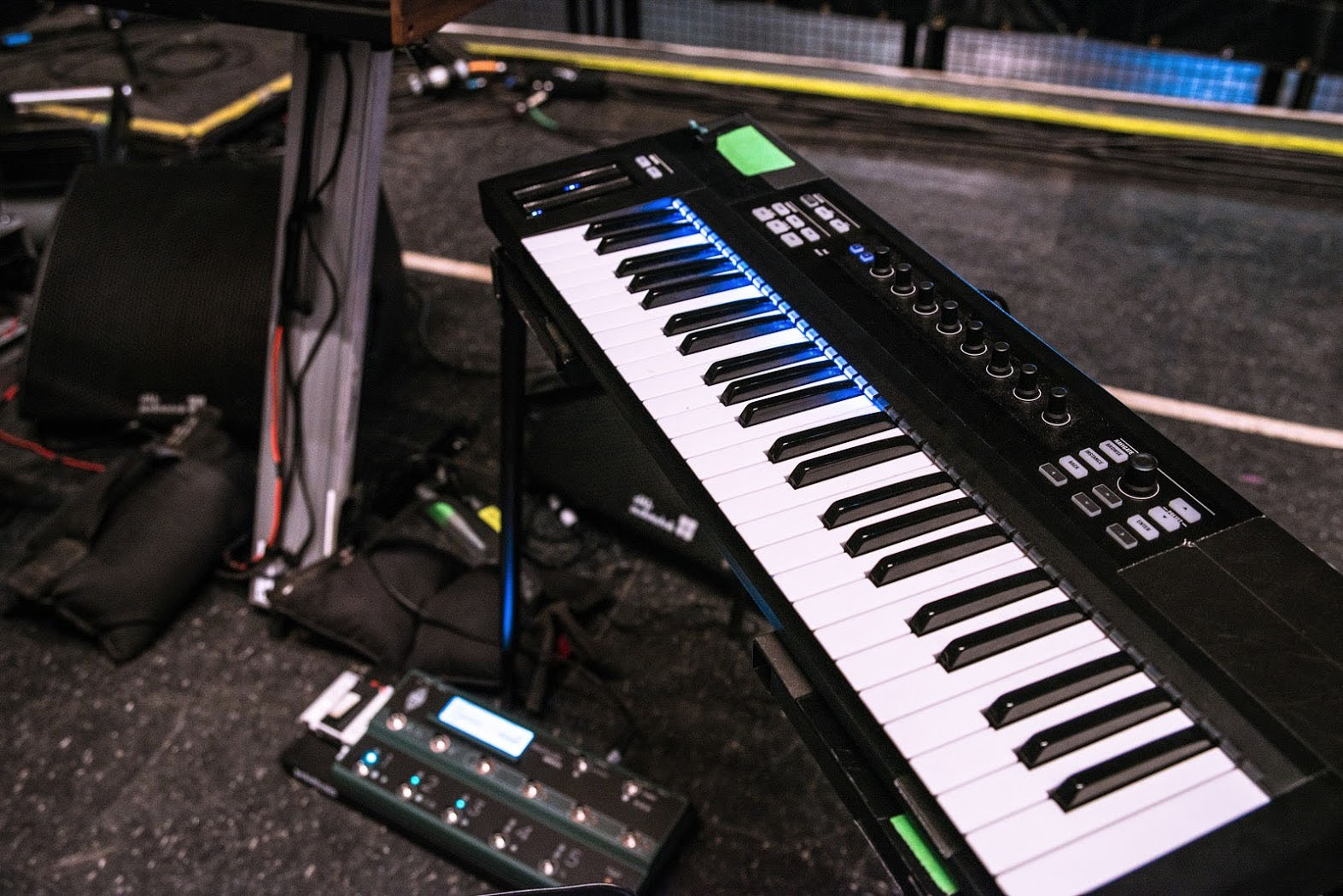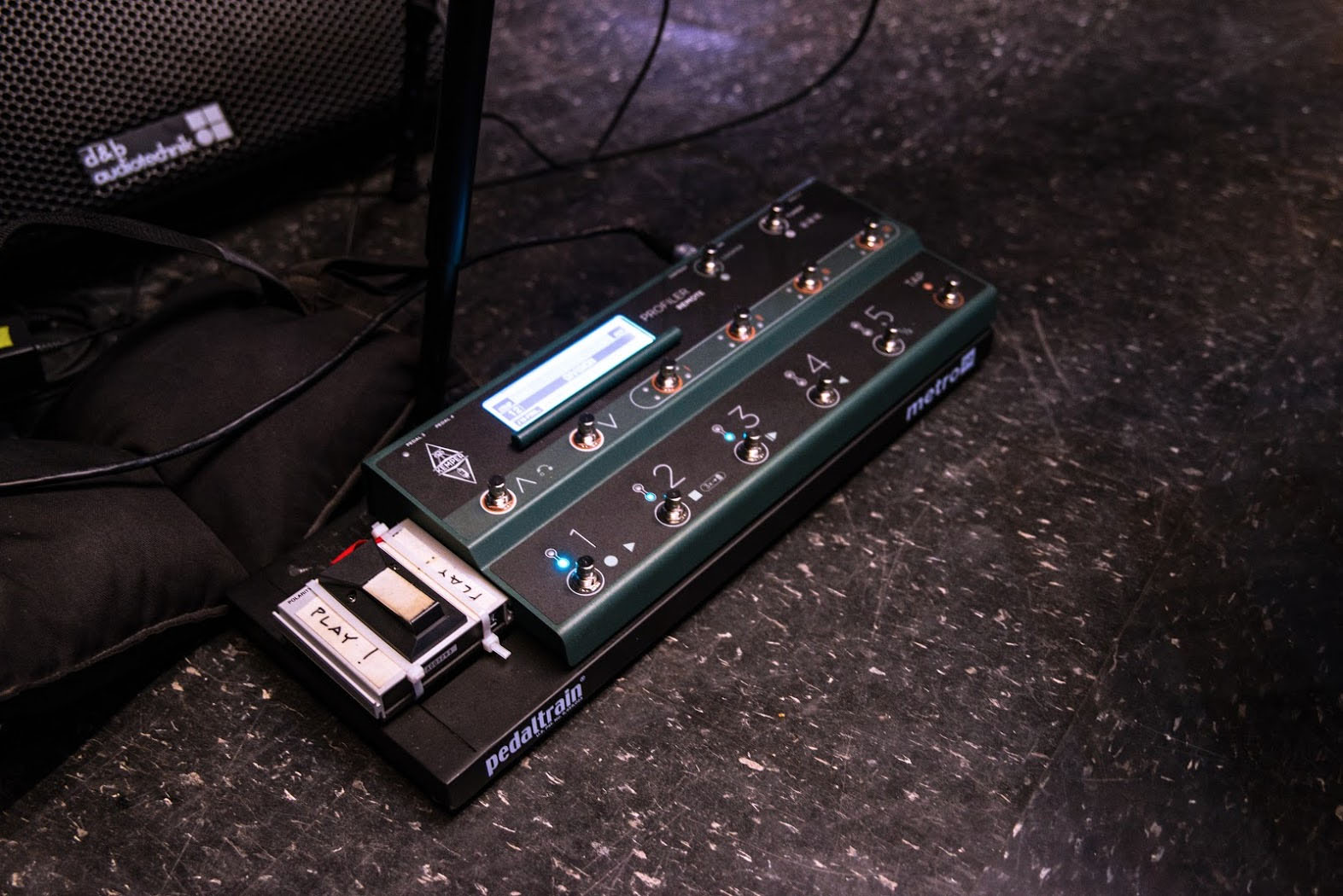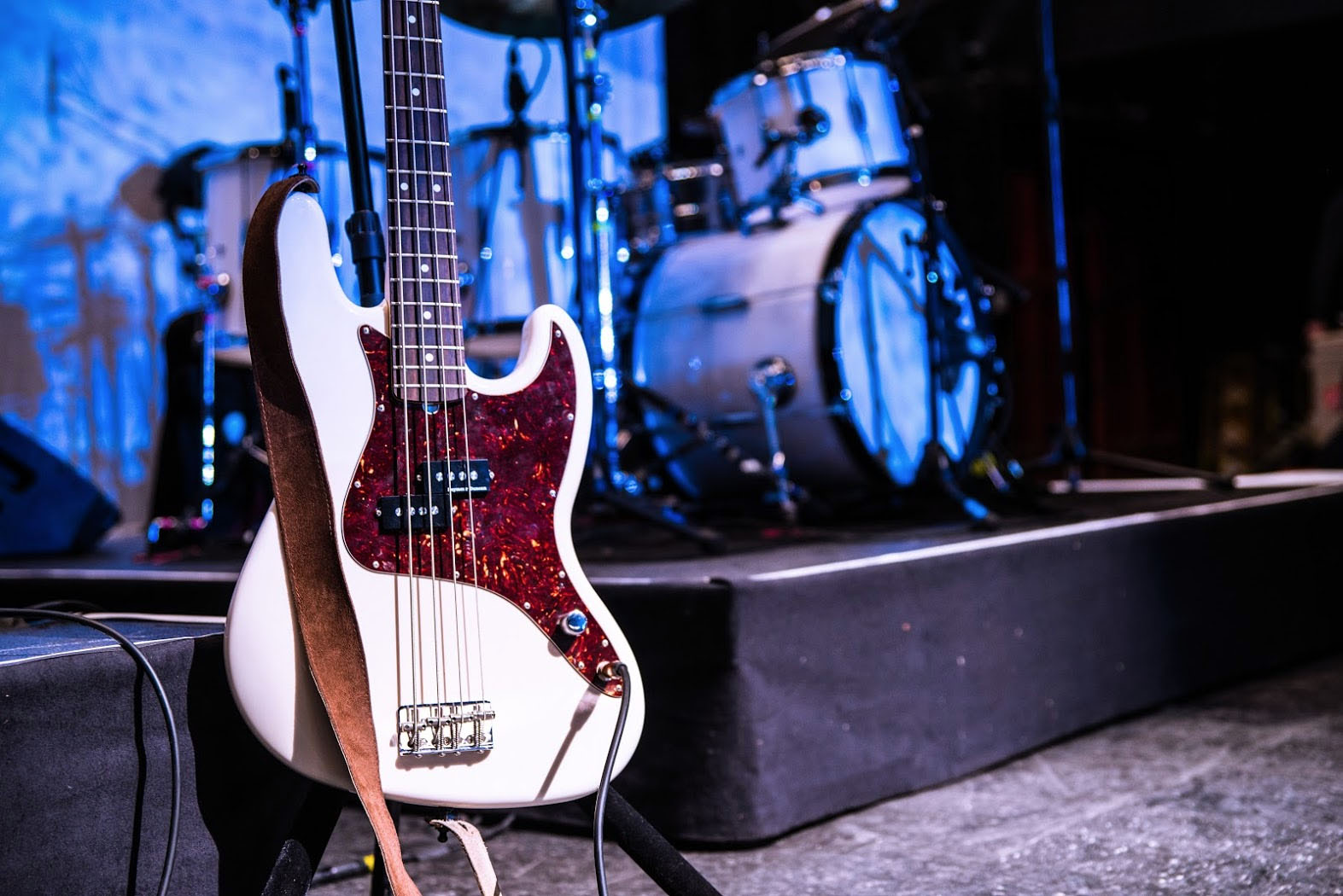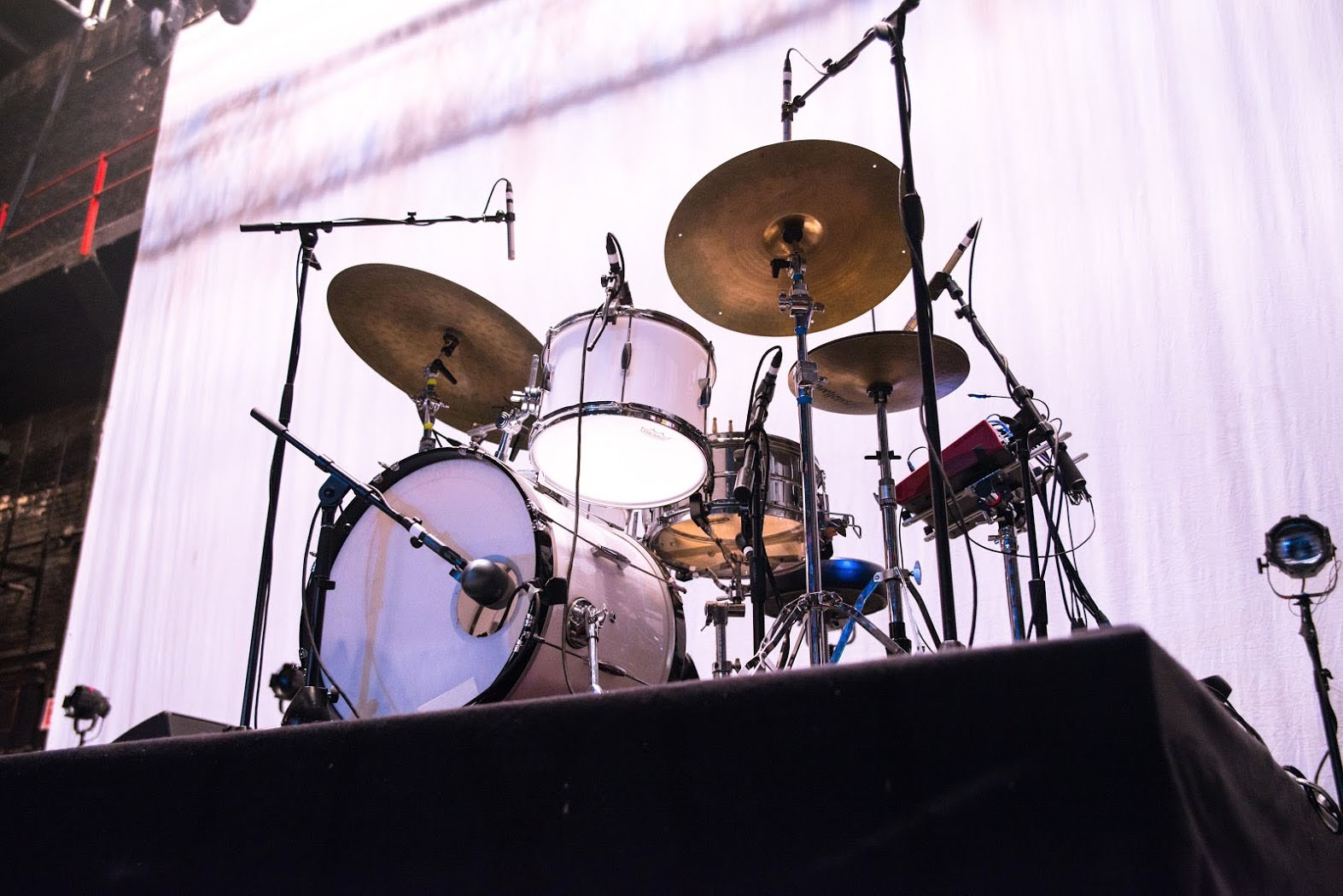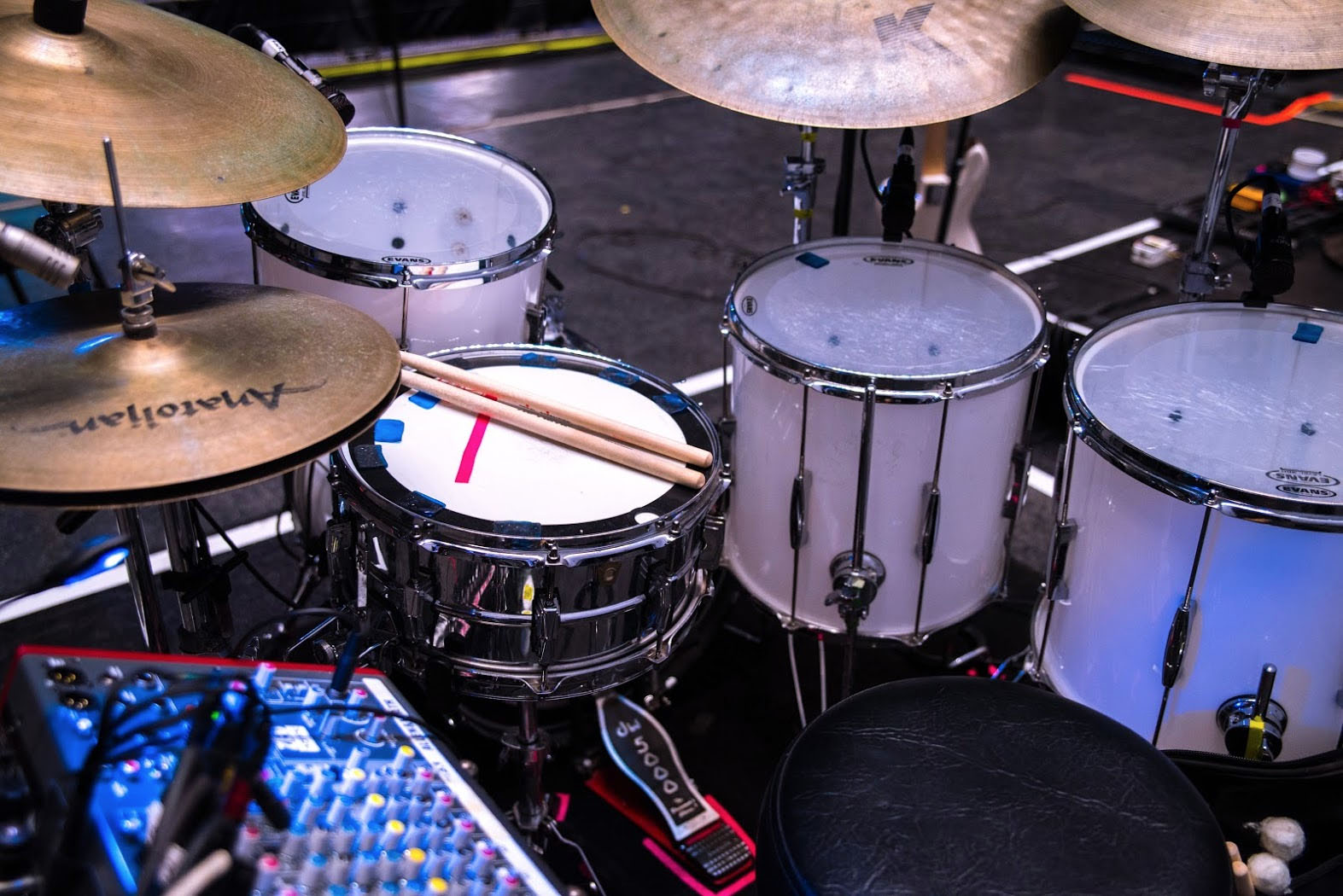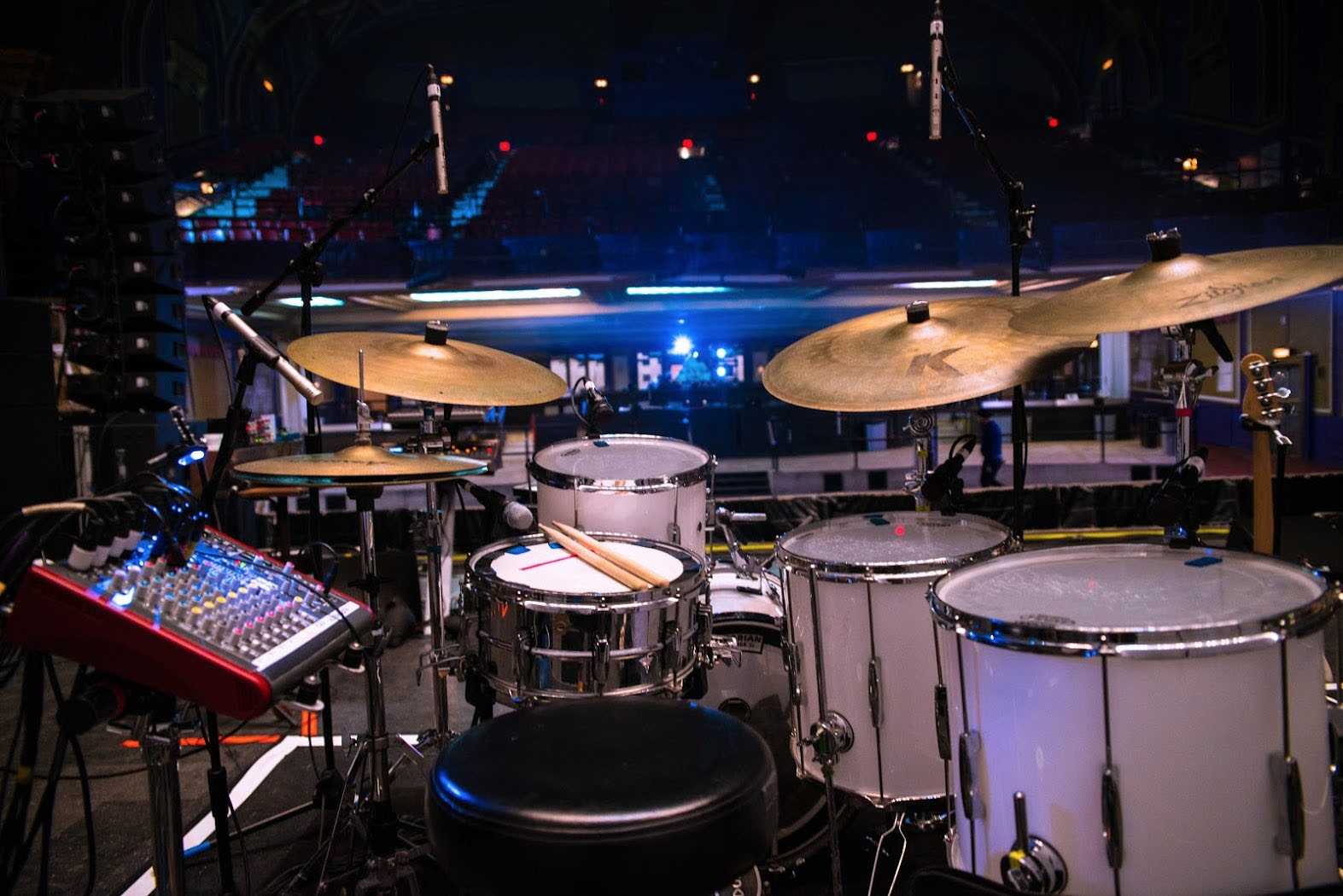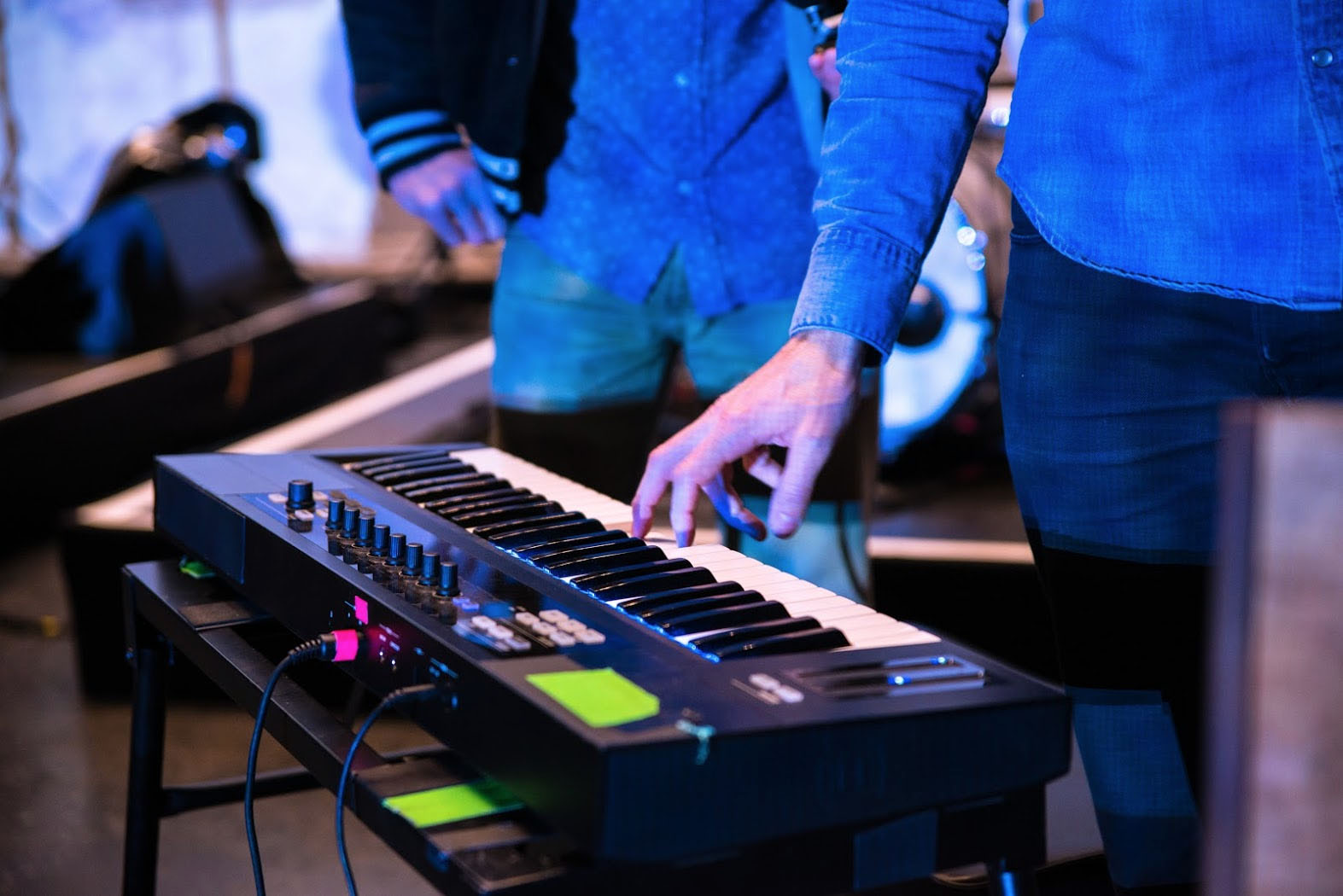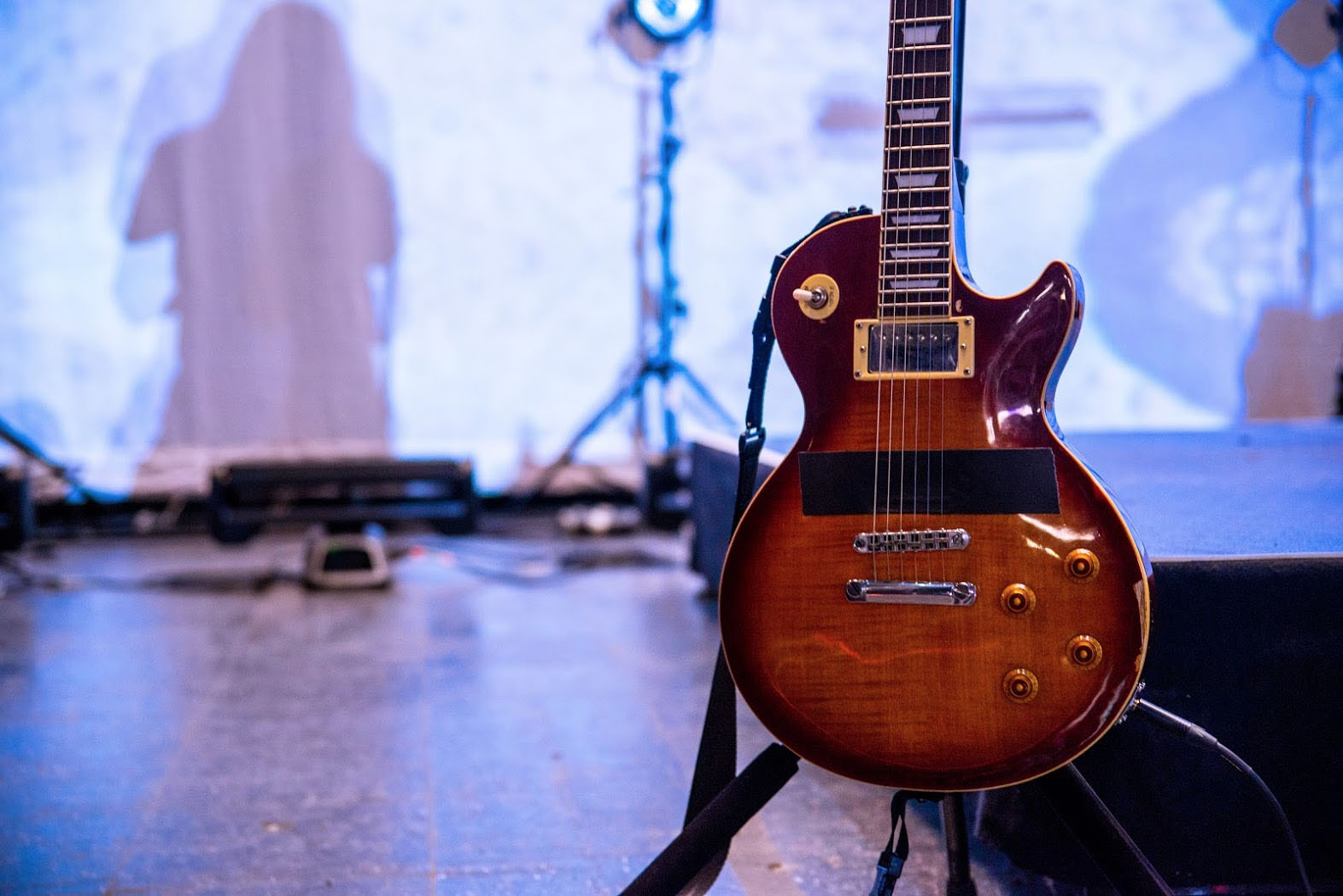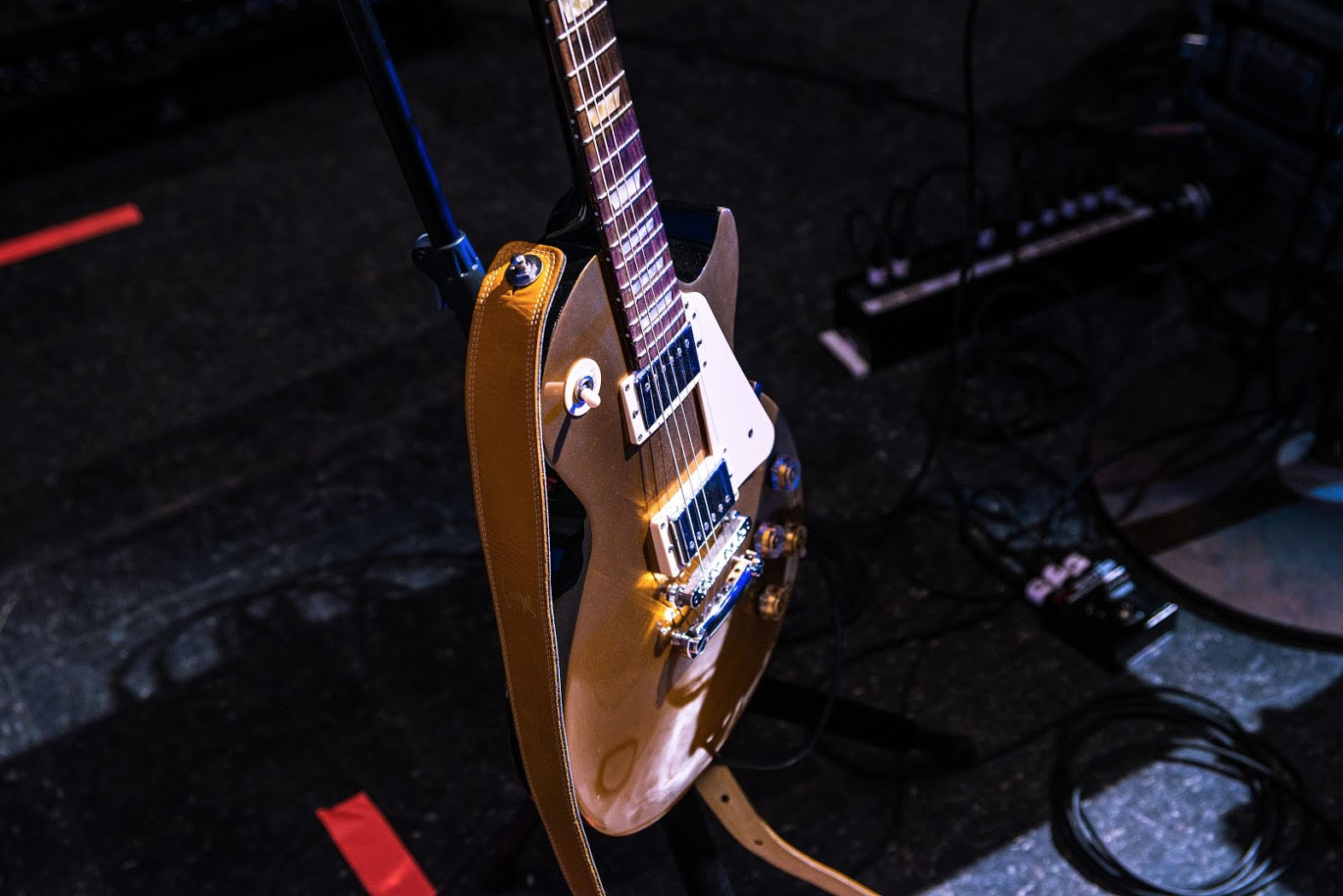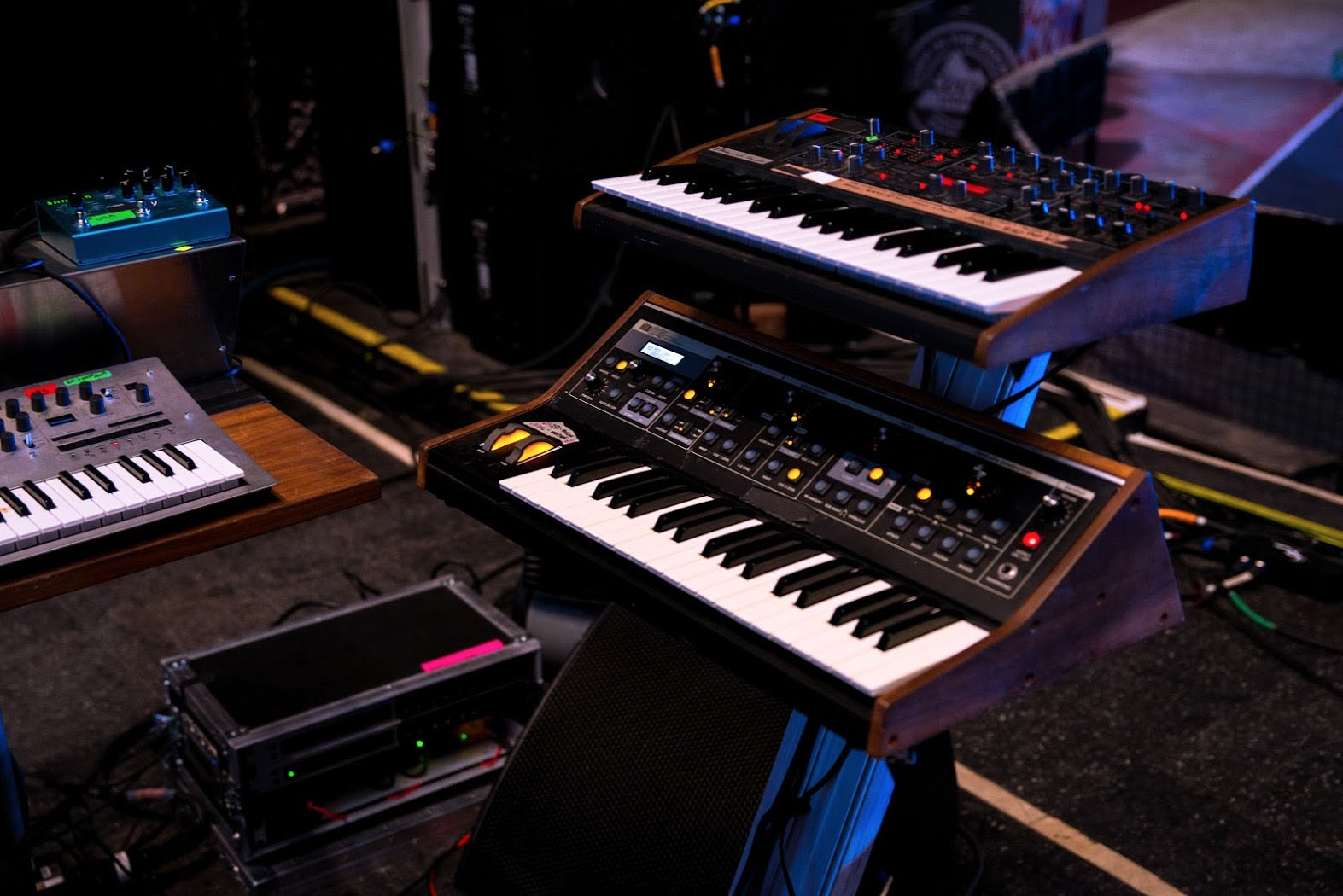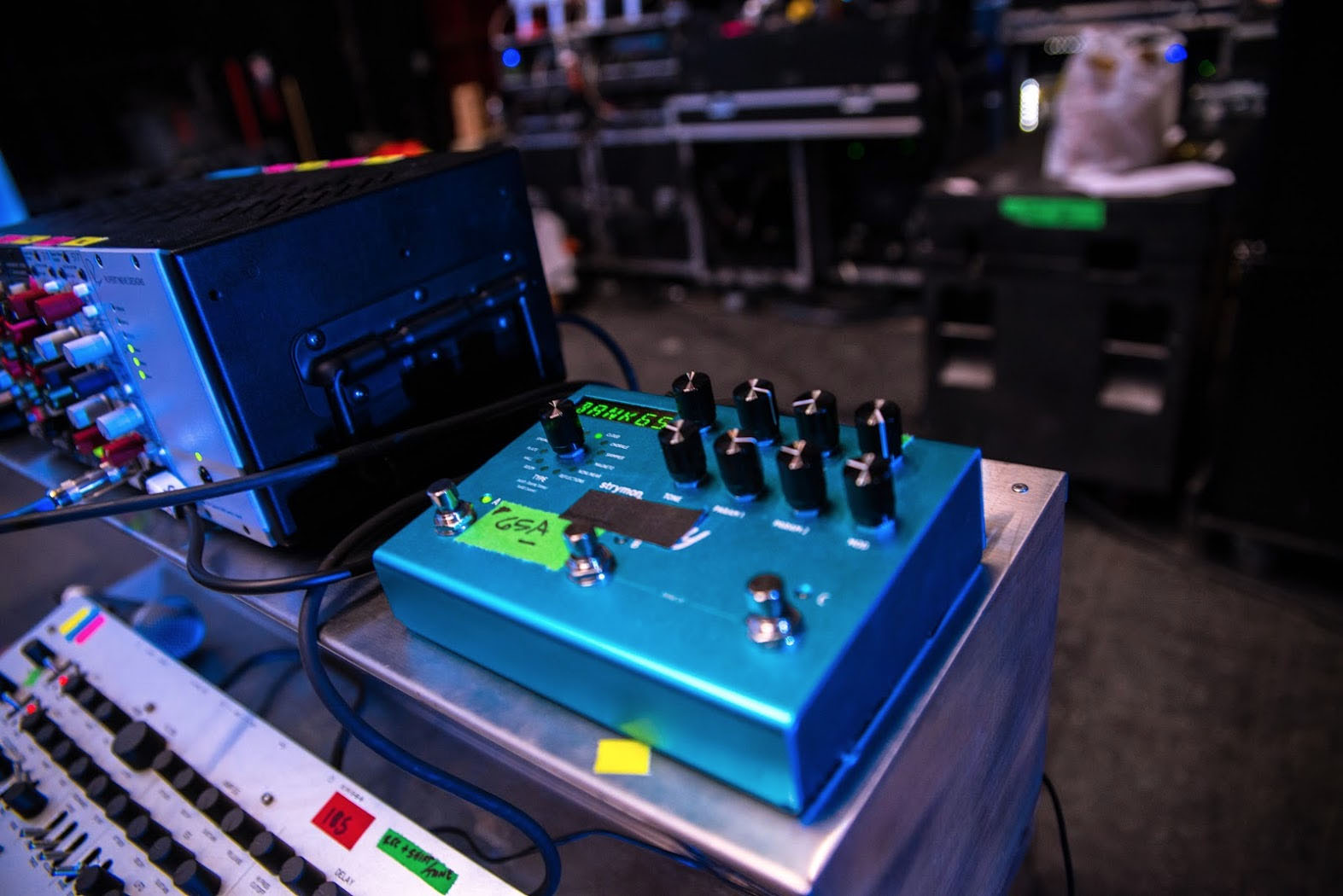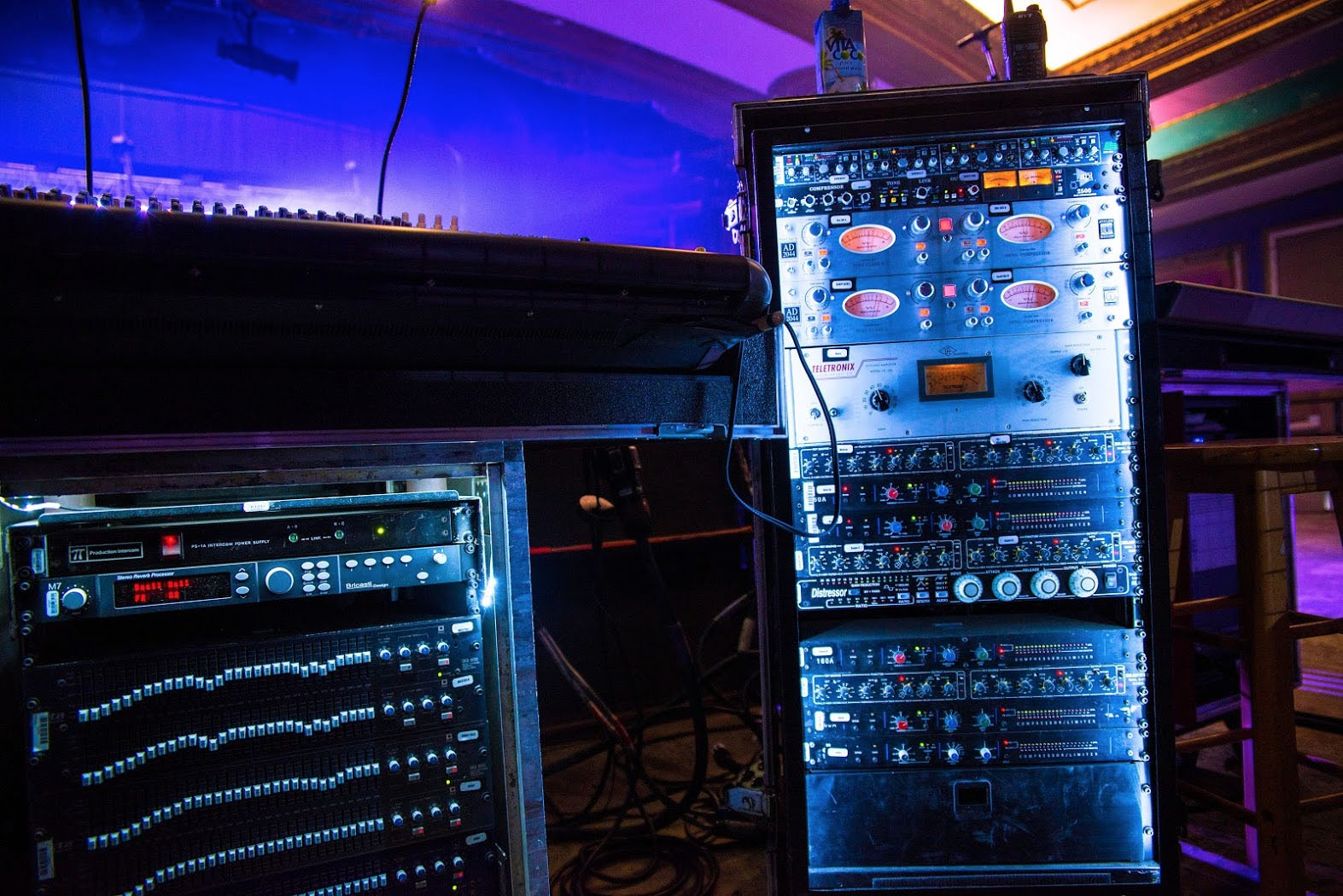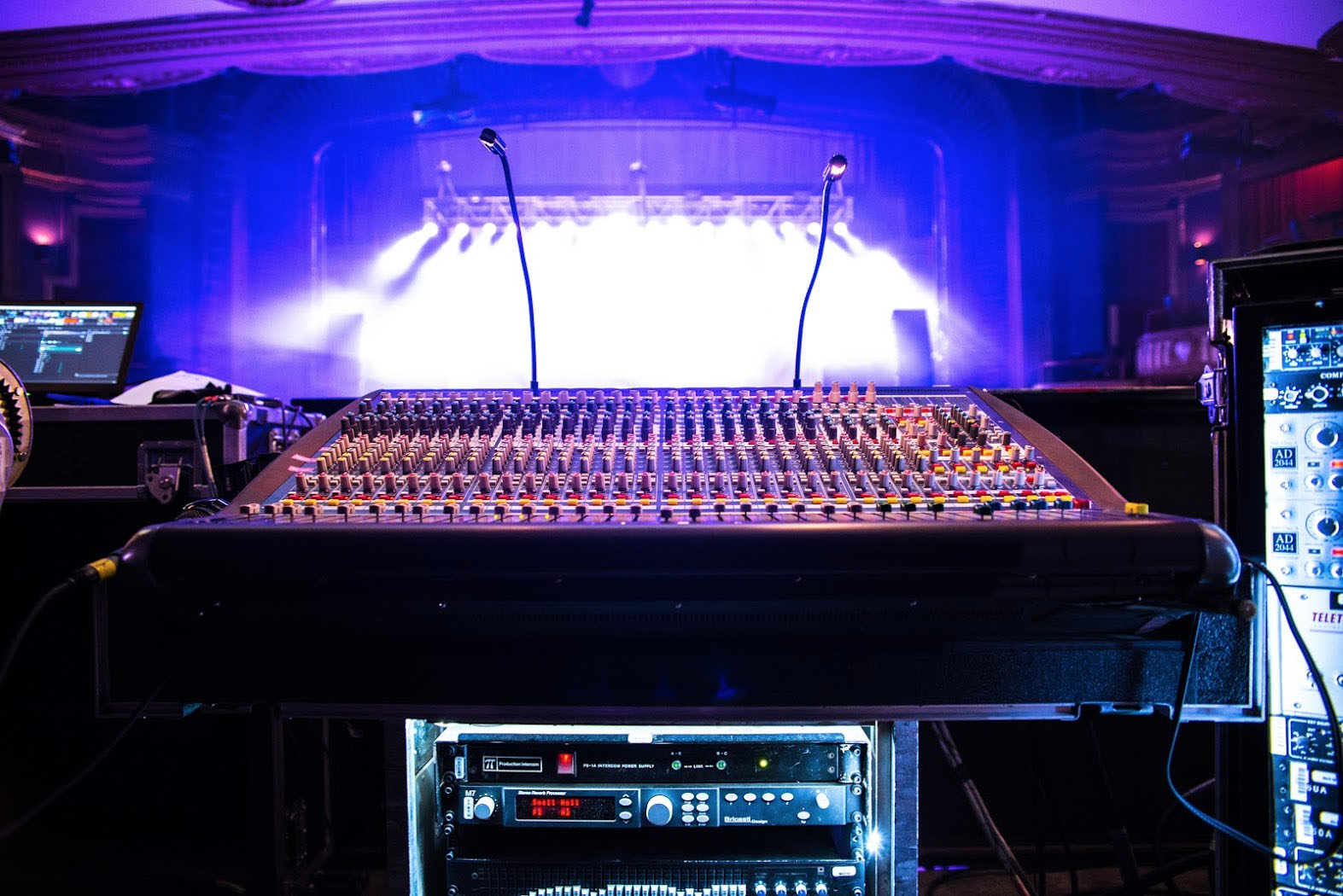Back in 2002, Tycho started out as solo bedroom producer Scott Hansen’s pet project. Today, Tycho is a full–blown touring band that delivers live, electronically crafted audiovisual experiences night after night. This past April, Tycho even headlined Coachella.
We had a chance to drop by Tycho’s soundcheck to take an in–depth look at both the technical and creative aspects of the band, discuss the challenges that go along with presenting such an immersive experience, and most importantly, check out their rig.
Tycho’s Evolution
Central figure Scott Hansen told us that the evolution of Tycho was an iterative process — a swelling buildup of little additions here and there that compounded into a more and more immersive and fully fledged production.
What Scott says is integral to where Tycho stands today is the fact that they started small, learning smaller, cheaper systems completely before moving on to larger and more complicated offerings. By starting small, they made sure never to waste time trying to work on something they weren’t equipped to handle.
Now, in the station they’re in today using bigger projectors for their visuals and crafting bigger sounds, they finally feel like they’re realizing their vision.
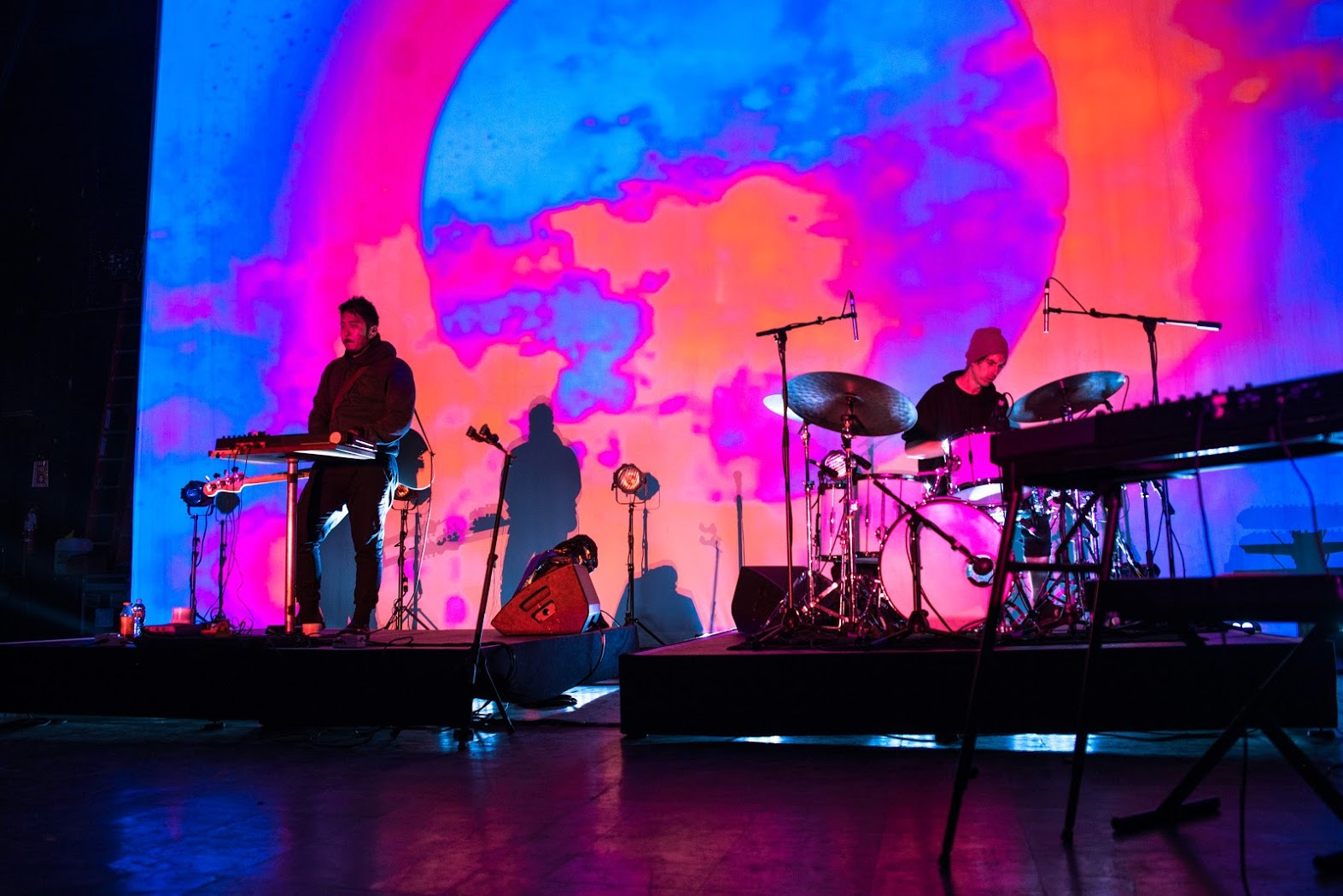
Tycho's stage lights and visual projections
Scott told us, “The audience is having that experience that we want them to have. It’s a more inspired performance now, because you can feel the power of the projector and the lights, and everything feels big and powerful now. It’s a huge confidence boost.”
As the band and live performance has grown and evolved, the way that music gets written and recorded has changed as well. Scott tells us that he “typically likes to create songs in a vacuum” before sharing them with the rest of the band for feedback on what works and what doesn’t.
For this most recent album, however, some of the songs were written by both Scott and Zac (Brown) from the start, and Scott’s dream is that that process continues. “My dream has always been to find the space and the time when we can all go in and make whatever that record sounds like exactly in that room. So we’re moving toward that.”
Tycho on Gear
Though Tycho uses a large setup today, his approach to gear reflects his more humble beginnings. “I don’t want to sit here and say that it’s all about gear, because if you’re young and you don’t have money or you’re just getting started, it’s hard to wrap your head around these complicated systems.
“But once you learn more and develop more skill and have a better idea of what you’re doing, you want the best tools for the job. And ‘the best tools’ aren’t black and white. I find inspiration from all kinds of gear.”
In particular, Scott told us that he tends to draw inspiration from synths, whether they’re the top–of–the–line brands or lesser known obscurities. Many of the songs on Tycho’s most recent record, Epoch, were born out of his noodling with a Korg Minilogue.
Another benefit of refining your rig by investing in higher–end gear is in the resale value. “You can convince yourself that [buying better gear] is actually an investment!” [laughs]
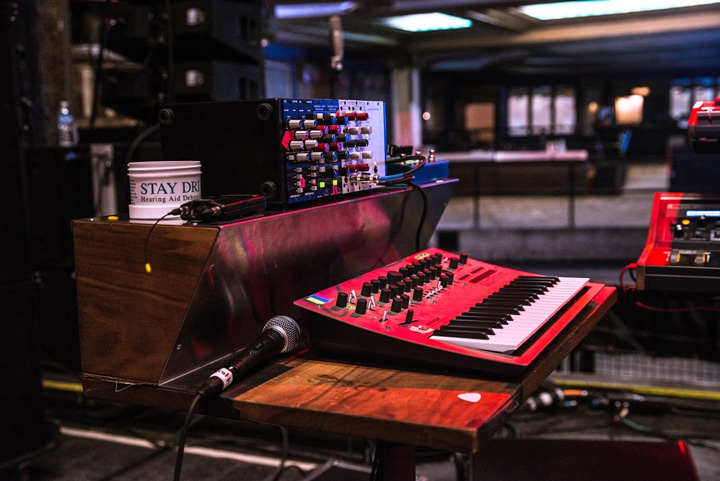
Korg Minilogue
Scott also recognizes the other side of upgrading your gear — the fact that you can no longer blame it for a mediocre sound. Once you’ve acquired the best of the best in terms of gear, what your performance sounds like falls entirely on your shoulders. It’s up to you to truly improve your sound.
We wanted to ask Scott what his thoughts and advice were for beginner producers who maybe couldn’t afford to grab a bunch of vintage hardware, and we were excited to hear that about 80% of Epoch was actually made with plugins — great, budget–friendly options for producers.
Scott recommends Waves’ offerings because of how versatile their suite is and excitedly told us about how he’s been using Universal Audio for live shows and expects to take those into the studio the next time around.
Two of his go–to plugins in particular are the Jupiter 8V and CS–80V from Arturia.
A Look at Tycho’s Rig
Tycho writes and records in Reaper, a powerful multi–platform DAW that began years ago as a more open alternative to Pro Tools or Logic and has evolved into a quick–iterating, highly flexible workstation that matches both in terms of power and far surpasses them in customization options.
They run Reaper sessions live to control plugins, mixing, and automation. Reaper’s tab features let them keep each song on its own page, eliminating CPU overhead from plugins on non–active tabs then recalling everything into place at a click — from synth presets to guitar patches.
They use Ableton Live on a second computer to coordinate the master automation that syncs the set list, Reaper, visual projections, and lights.
Both Scott and longtime guitar and bass partner Zac Brown play Les Pauls through Kemper Profilers for all of the guitar tones.
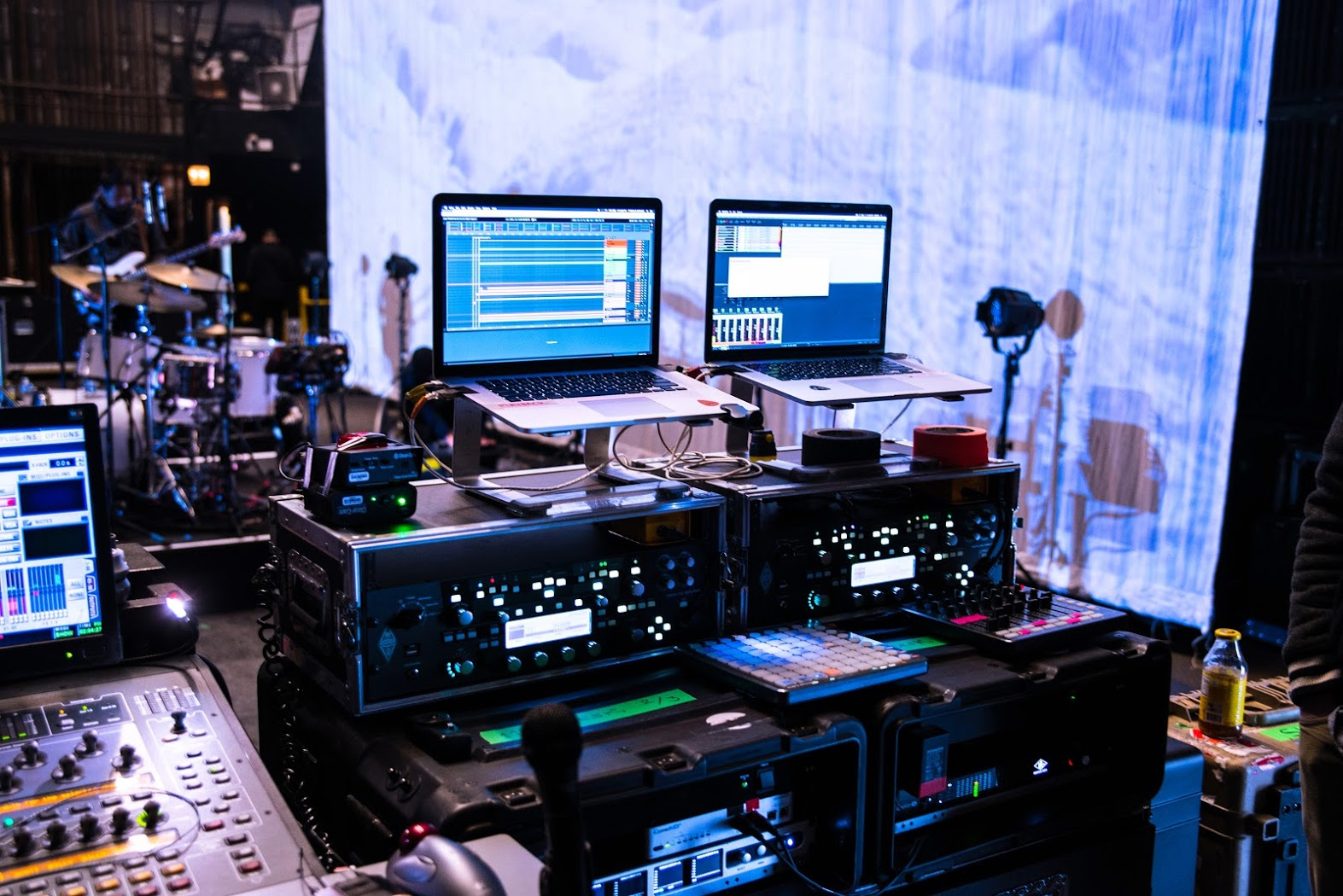
Tycho on-stage setup
Zac and bassist/keyboardist Billy Kim tradeoff duties on a Fender Mark Hoppus Signature Bass — notable for its combination of a Jazz Bass body with an upgraded Seymour Duncan Quarter Pounder Precision pickup and the lack of any tone control. This model outputs straight through a single volume pot to give you the raw, wide–open tone of the pickup, which they feed into a Rupert Neve DI for a bit compression, warmth, and saturation.
Billy primarily uses an Akai MPK 249 to play soft–synths running on the Reaper machine. It’s impressive that their rig has the power to to control so much and run VSTs at a latency low enough to perform dynamically live.
Drummer Rory O’Connor uses a custom kit made up of RCI Acrylic Shells with a Ludwig Supersensitive snare, and currently favors vintage Zildjian Avedis cymbals for a bright, expressive sound. He keeps his kit tuned to be very thumpy and dry with little sustain to help mirror the warm, electronic–tinged tones favored on many Tycho songs.
Scott’s station is unsurprisingly the most elaborate. Encircled by custom–built synth stands that reflect the future–nostalgia aesthetic of the group, Scott has access to his new favorite Korg Minilogue, a Moog Little Phatty, a long–serving Access Virus (the TI2 Darkstar Edition, which primarily functions as a MIDI–controller for VSTs), and a Native Instruments Komplete Kontrol S49.
The reasoning behind the preponderance of MIDI controllers on stage is that many of the synths they record are vintage units from Scott’s collection, including the Korg Mono/Poly and Moog Minimoog Model D, which Tycho has sampled into Kontakt patches for live use rather than lugging the original units on the road. Scott also plays guitar, favoring a stock goldtop Joe Bonamassa Signature Les Paul.
The rack of outboard gear by the soundboard is enough to make any studio head’s mouth start watering. Helmed by Peter Franco, one of the Grammy–winning engineers behind Daft Punk’s Random Access Memories, it features studio staples like Empirical Distressors, an LA–2A, and a pair of Avalon VT–737s among other top–of–the–line units. Much of this is used for drum processing and accounts for part of the truly impeccable drum sound they present live.
